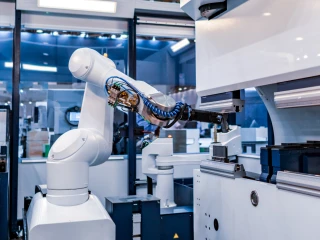How To Build An Automation Mindset
An organisation that puts automation first adheres to a different set of values than conventional organisations. When a new issue arises, they consider how a hybrid workforce can best solve it rather than how humans or software can handle it.
Building an automation-first mindset isn't simple, but with gradual and concerted efforts and great teamwork, companies can achieve this in no time.
Here are simple principles an organisation must adopt in building an automation-first mindset:
Change your focus from "Who" to "How"
One of the biggest problems of automation is that many companies are still stuck in the old thinking that people are the only ones who can make things happen. With an automation-first mindset, you need to ask "How to get the work done?" rather than "Who will do the work?"
When the right question is asked, you'll realise that getting work done does not necessarily depend on new hiring but could be getting your processes automated for efficiency.
Consider things from an outcomes-oriented angle
Focus on the outcomes. An automation-first mindset means building your hybrid workforce from your desired business outcomes. This gives you the freedom to use software robots or people as necessary. When a process requires repetitive, time taking, and tedious work, you know there are robots ready to operate at whatever level of processing power is needed.
Thus, we humans can solve problems that we are better at, like abstract thinking or creativity, and not be stuck in repetitive, manual work.
When your work perspective shifts to an outcomes-based approach, you realise that a hybrid workforce that combines humans and automated robots is the future of any organisation.
Automate everything that can be automated.
Having an automation mindset means looking at all your processes and asking, "Can we automate this?" If the answer is yes, then you should do so immediately. Here are the following types of work that should definitely be automated in your work process:
- High volume/ high-frequency jobs
- Repetitive and mind-numbing tasks like copying and pasting data entries
- Jobs prone to errors, mistakes, and typos
- Time-taking jobs
Once you can successfully highlight these processes that can be automated, then get proactive! Start small, involve your entire workforce, and build from there. Automation allows for more efficient business processes and creates growth opportunities. Automated systems are much faster than manual ones, so you'll get your results quicker. Add in the fact that there's less room for error, and you realise how much of a higher ceiling this gives any business.
Create the frameworks necessary for this mindset shift
In adopting an automation mindset, you have to establish systems that ensure and favour automation. This would encourage and give your staff the freedom to develop innovative automation ideas independently.
Automation is most valuable when everyone uses it, so educating your team and training them to imbibe the basic tenets of automation is definitely a way to go. When all team members understand how vital automating processes is to the success of a company and its future growth potential, everyone gets on board and works in the same direction.



/Website_Landingpage_Trending_1920x355-(1).webp?mode=autocrop&w=320&h=240&attachmenthistoryguid=57d5a99c-0ac1-4a65-bf94-a69fd76f9f99&v=&c=7a8e0fb90debce76804ff5d09616931d882d19a0679ecb65d41280a3f452d89c)
/banner-people-Work-automation-(1).webp?mode=autocrop&w=320&h=240&attachmenthistoryguid=897ab15e-c797-45ca-8d7e-28584fd4a2d4&v=&focusX=948&focusY=149&c=22fc69931a21a016d94c79a7cbf27469de7d8910ad9998495a94e1fc3fbf43cd)